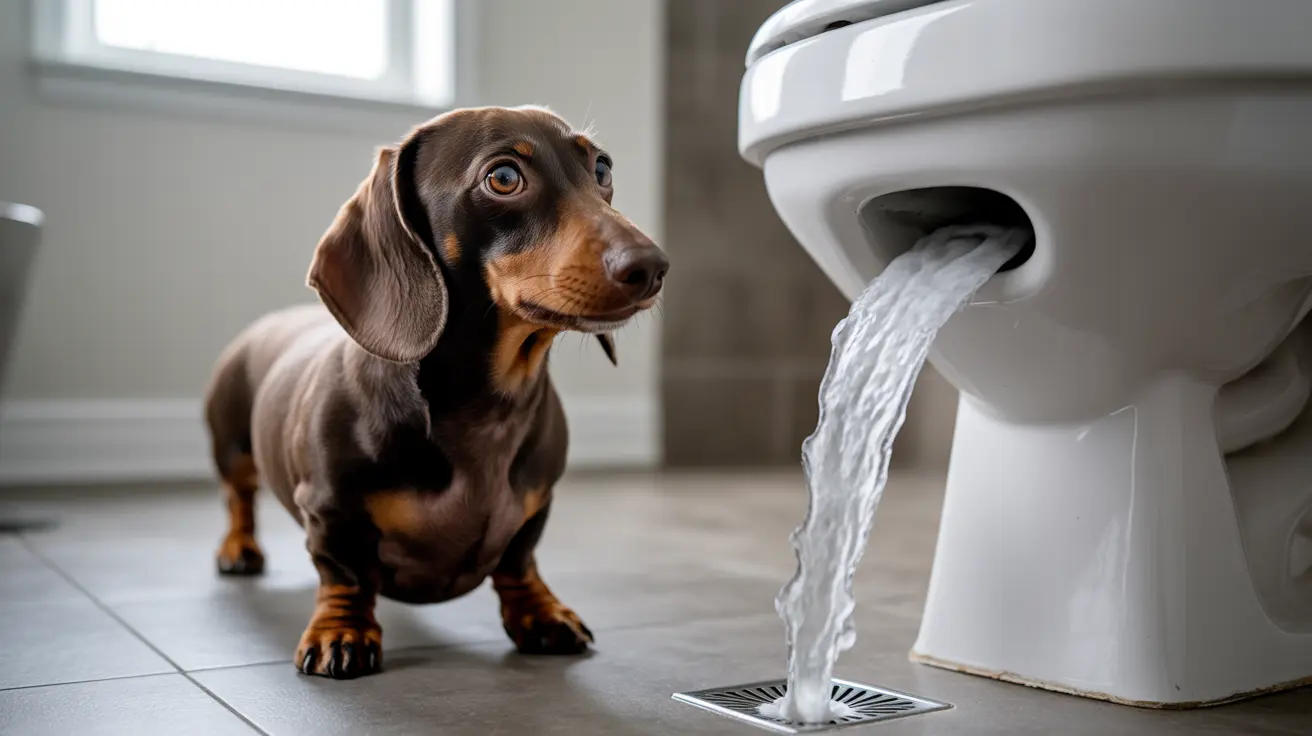As responsible pet owners, we all face the daily task of disposing of our dog's waste. While most of us automatically reach for plastic bags and the nearest trash bin, you might be wondering if there's a more environmentally friendly solution - like flushing dog poop down the toilet. This comprehensive guide will explore the safety, environmental impact, and best practices for disposing of dog waste through your home's plumbing system.
Understanding the proper way to handle dog waste isn't just about convenience - it's crucial for public health and environmental protection. Let's dive into everything you need to know about this often-overlooked aspect of pet care.
The Truth About Flushing Dog Poop
Generally speaking, you can flush dog poop down the toilet if your home is connected to a municipal sewer system. However, this comes with important caveats. The waste must be flushed without any bag or wrapper, even if labeled as "flushable." Municipal water treatment facilities are designed to handle both human and animal waste, making this a potentially eco-friendly disposal option.
However, this method isn't suitable for everyone. If your home uses a septic system, you should never flush dog waste as it can disrupt the delicate bacterial balance needed for proper waste decomposition.
Environmental Impact and Health Considerations
Dog waste contains harmful bacteria, parasites, and pathogens that can pose serious risks to public health and the environment. When properly processed through municipal sewage treatment, these harmful elements can be neutralized effectively. However, when improperly disposed of, dog waste can contaminate waterways and pose health risks to both humans and wildlife.
The EPA has historically supported flushing as an environmentally responsible disposal method, particularly in urban areas. This approach ensures that waste is properly treated rather than ending up in landfills or washing into local waterways through storm drains.
Safe Disposal Guidelines
What You Should Never Flush
- Dog waste bags (even biodegradable ones)
- Pet waste wipes (even those labeled "flushable")
- Dog waste if you have a septic system
- Any cleaning materials used to clean up the waste
Alternative Disposal Methods
If flushing isn't an option for you, consider these alternatives:
- Double-bagging waste in biodegradable bags for trash disposal
- Using specialized pet waste composting systems
- Municipal pet waste collection services (where available)
- Commercial pet waste disposal services
Best Practices for Dog Waste Management
Regardless of your chosen disposal method, following proper hygiene practices is essential. Always wash your hands thoroughly after handling pet waste, and keep disposal supplies readily available. If you choose to flush, do so with only the waste itself - never any accompanying materials.
Consider keeping a dedicated "waste station" in your yard with appropriate disposal materials and hand sanitizer. This makes the process more convenient and helps ensure consistent proper disposal practices.
Frequently Asked Questions
Can I flush my dog's poop down the toilet safely?
Yes, you can safely flush dog poop down the toilet if your home is connected to a municipal sewer system. However, the waste must be flushed without any bags or wipes, and you should first check local regulations to ensure this practice is permitted in your area.
Why should I never flush dog poop bags or wipes, even if they're labeled "flushable"?
Despite marketing claims, these products don't break down like toilet paper and can cause severe blockages in both home plumbing and municipal sewer systems, leading to expensive repairs and environmental problems.
Is flushing dog poop okay if I have a septic system at home?
No, you should never flush dog poop if you have a septic system. Dog waste can disrupt the bacterial balance necessary for proper septic system function and may cause system failures.
What are the environmental risks of flushing dog poop versus putting it in the trash?
Properly flushed dog waste (in municipal systems) gets treated at water treatment facilities, while bagged waste in landfills can take years to decompose and may leach contaminants into groundwater. However, improper flushing can lead to pipe blockages and water system contamination.
How can I dispose of dog poop in an eco-friendly way without flushing it?
Use biodegradable bags for trash disposal, consider specialized pet waste composting systems, or look into municipal pet waste collection services. Always avoid disposing of waste in storm drains or leaving it unbagged in regular trash.
Conclusion
While flushing dog poop down the toilet can be an environmentally responsible choice for those connected to municipal sewer systems, it's crucial to follow proper guidelines and local regulations. Whether you choose to flush or use alternative disposal methods, the key is consistency and adherence to safety protocols to protect both public health and the environment.






